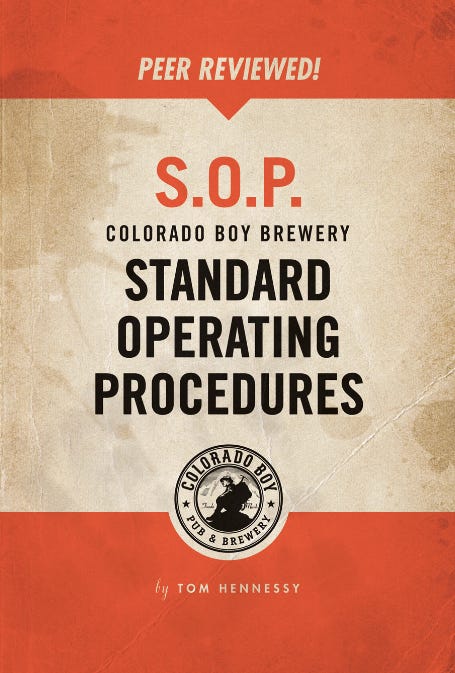There is an awful side to being a brewery (or any business) owner. That is, sooner or later you are going to have to fire someone. I can’t remember the first person I had to let go. I had two partners and it was usually a joint venture. Actually, that’s not true. I was a restaurant manager before we opened our first place and there were plenty of people I had to let go. Each one was a painful experience.
Many however were individuals I should have let go long before I finally did. One I remember was a cook, I’ll call him Bruce, who was one of our main kitchen people at our high end Italian restaurant in Albuquerque. He was a dick. He was a dick to everyone who worked with him, and he was a dick to us (my partners and me). However he was a really good cook. We talked about getting rid of him for months but we kept thinking, how are we going to replace him? But the truth was, his personality was a cancer in the kitchen. Everyone hated working with him. Something had to be done.
When I was a young manager and had to fire my first person, the owner of the company gave me a piece of advice that I still use. He had fired lots of people over the years. I remember he fired a bad waitress once who happily went on to a better life - Stevie Nicks. Anyway, he told me this simple mantra.
5 Minutes of agony. A lifetime of ecstasy
In other words, as bad as it feels before you do the deed, you feel this giant weight off your shoulders as soon as it’s done. Getting back to Bruce. We sat him down, having dreaded it for days. We stumbled on our words and finally said we were letting him go. He looked at us, didn’t say a word, got up and grabbed his stuff and was out the door. We felt great. I mean, really great and so did the kitchen staff.
So I use that mantra in my mind over and over when I think it’s time to let someone go. I had an assistant brewer when I owned the Palisade Brewery who made our lives miserable. When I finally had enough, I let him go and the head brewer hugged me.
The only problem with letting people go is in most cases it usually is put off for way too long. Now there are proper ways to do it. For one, you should have written policies that govern behavior and performance in your operation. Things like theft and drugs call for immediate dismissal. You need to document any warnings to an employee as well.
We maintain a file on each employee that has all their paperwork including a signed sheet saying they have received and read the employee manual. Any warnings go into this file. Also, we have a daily log book that a manager writes in at the end of the shift. They document any problems in that as well. By doing these things the employee can’t complain that they had no idea they were breaking any rules. This all factors into unemployment benefits as well. If you let a person go for stealing, and then they make a claim for unemployment benefits, it’s like stealing from you twice. If you have yoour policies well-documented their claim can be denied.
The main thing I wanted to address here however is the fact that sooner or later you are going to have to fire someone. Steel yourself to this fact and keep that mantra in your head. It will make it easier for you, and your other employees will be happier too.








Interesting read. These past few Weeks the manager team with been getting coach up on how to have difficult conversations with staff. Not necessarily terminate but to correct a situation. I found this in the ball park of that, but would be nice to know how have you addressed difficult conversations with your staff.
Thanks for this article. Good mantra for sure.
On a side note, have you ever used a CELOC (commercial equity line of credit) as a funding source from one of your commercial properties you owned? If so, pros and cons? I am pretty adverse to debt so I’d only go this route if I were to use 100% cash for a building (no mortgage) and then use the CELOC to cover the remaining expenses for equipment/build out. I’d then be focused on paying off the CELOC as soon as possible.
Thanks again!